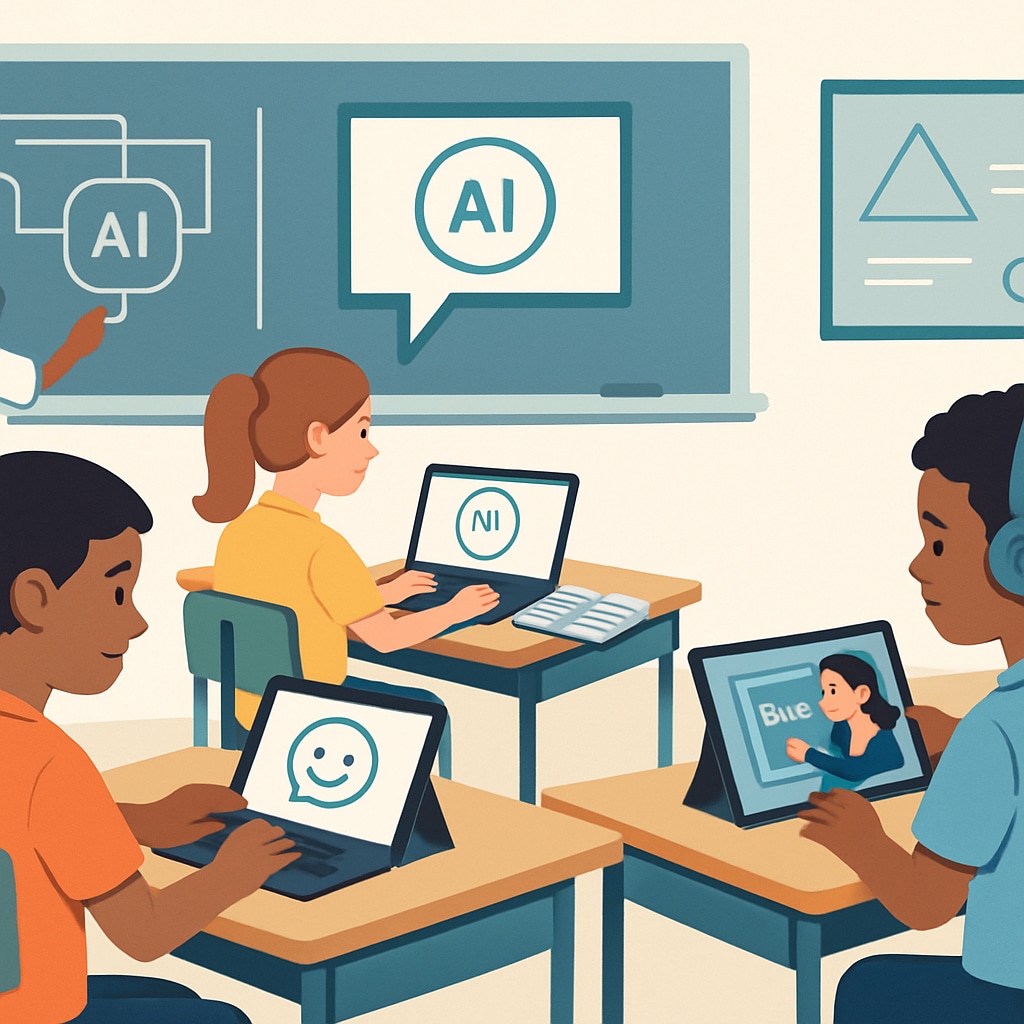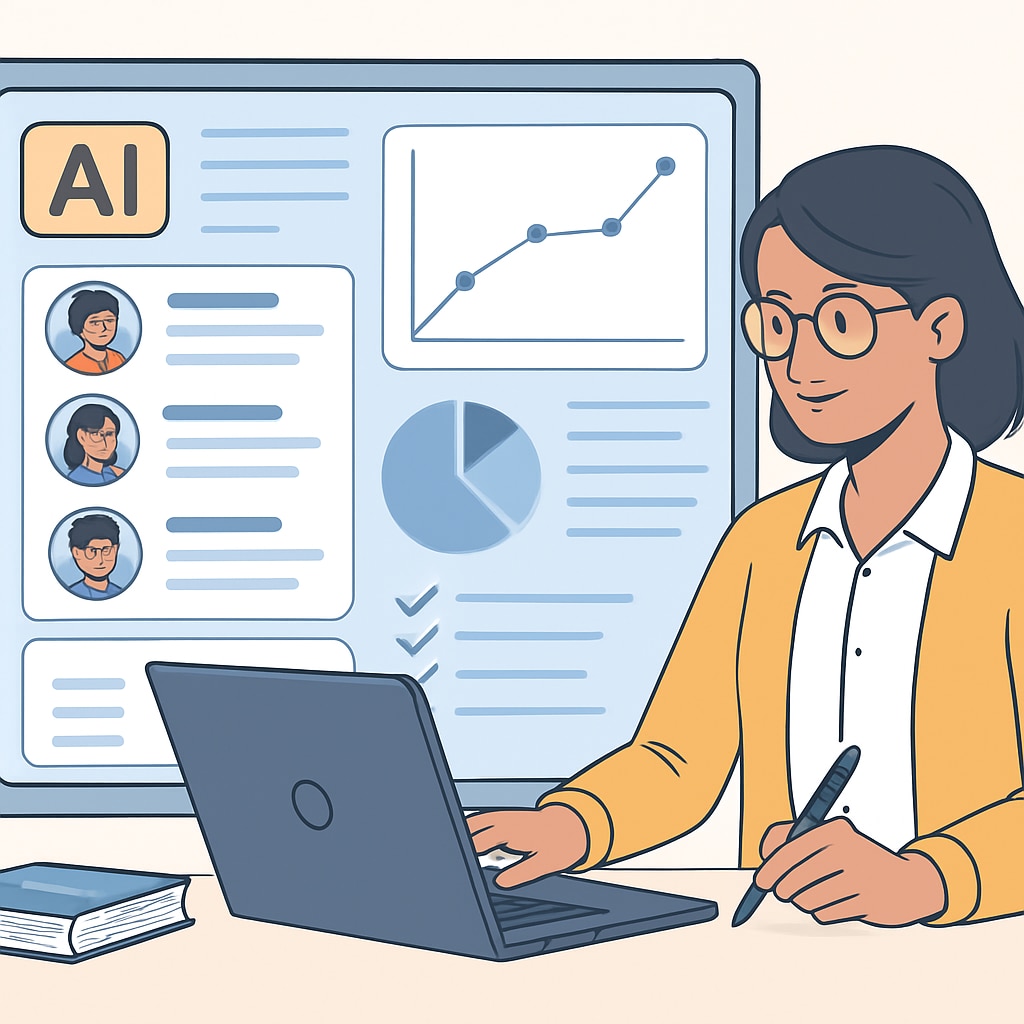Artificial intelligence (AI) is poised to revolutionize education systems worldwide. Its application in K12 learning environments over the next 5-10 years will profoundly reshape teaching and learning processes. From personalized learning experiences to smarter assessments, AI is enabling educators and students to approach education in transformative ways. As we step into this new era, understanding the implications of AI on education is crucial for all stakeholders, including teachers, parents, and policymakers.

Personalized Learning: Tailoring Education to Individual Needs
One of the most significant impacts AI will have on K12 education is the ability to provide personalized learning experiences. Traditional one-size-fits-all teaching methods often fail to address the diverse needs of students. AI-powered tools like adaptive learning platforms can analyze individual student performance and customize lessons accordingly. For example, these systems can identify areas where a student struggles and provide targeted resources or exercises to improve understanding.
Moreover, intelligent tutoring systems are becoming increasingly sophisticated, offering real-time feedback and guidance tailored to each learner. This shift allows students to progress at their own pace, reducing frustration and fostering a deeper connection to learning.
- Personalized study plans based on AI algorithms.
- Real-time feedback to address learning gaps.
- Scalable solutions for diverse classroom environments.
Smarter Assessments: Transforming Evaluation Methods
AI can also transform how assessments are conducted. Traditional standardized tests often fail to capture a student’s true abilities or potential. AI-driven assessment tools, however, can evaluate students more holistically, taking into account critical thinking, creativity, and problem-solving skills. For example, AI systems can analyze patterns in student work, providing insights beyond grades and scores.
Additionally, automated grading systems can save educators significant time and ensure consistency across evaluations. By enabling teachers to focus on more personalized interactions with their students, these tools enhance the overall educational experience.

Redefining the Role of Teachers
While AI will enhance education, it will also redefine the role of teachers. Educators will shift from being sole knowledge providers to becoming facilitators of learning, guiding students in critical thinking and creative problem-solving. This transformation will free teachers from repetitive tasks, such as administrative work, allowing them to focus on fostering deeper connections with their students.
Furthermore, AI can serve as a collaborative tool, assisting teachers in identifying students who need additional support and suggesting interventions. This partnership between educators and technology will ensure a more inclusive and effective learning environment.
Education Resource Redistribution and Global Accessibility
AI has the potential to address educational inequalities by redistributing resources and making high-quality learning materials accessible to all. For instance, AI-powered platforms can translate content into multiple languages, helping students in underserved regions access the same resources as their peers worldwide.
In addition, AI can help optimize school operations, ensuring efficient allocation of funding, staff, and materials. This capability is critical as schools face increasing pressure to deliver quality education despite limited resources.
- Language translation for global accessibility.
- Optimized resource allocation in schools.
- Access to virtual classrooms for remote learning.
Challenges and Ethical Considerations
While the promises of AI in education are exciting, its adoption also comes with challenges. Issues such as data privacy, algorithmic bias, and the digital divide must be addressed to ensure equitable implementation. Policymakers and technology developers must collaborate to establish ethical guidelines and safeguard the interests of students and educators.
Additionally, the rapid pace of AI innovation may require ongoing professional development for teachers to stay updated on the latest tools and methodologies. Preparing educators for this shift will be crucial to the successful integration of AI into classrooms.
As a result, artificial intelligence will undoubtedly reshape K12 education over the next decade. From personalized learning to smarter assessments, AI’s transformative power offers countless opportunities to improve teaching and learning processes. However, proactive measures must be taken to address challenges and ensure responsible implementation, paving the way for an equitable and innovative future in education.


